
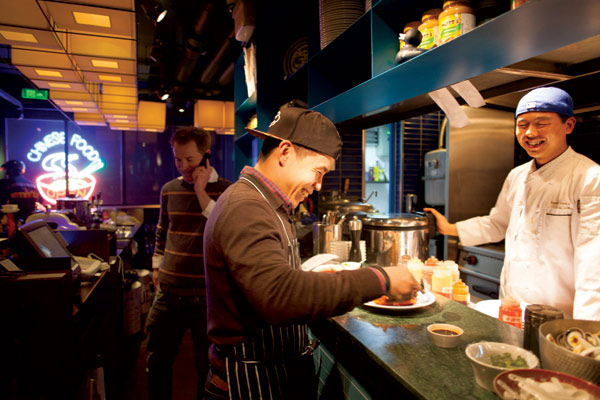 |
|
New Yorker Fung Lam, center, and business partner David Rossi also double as waiters. [Photo by Gao Erqiang / China Daily] |
Getting an alcohol license is easy in Shanghai but finding a premium location can be a battle, as the co-founders of Fortune Cookie discovered. It claims to be the first and only American-Chinese food restaurant in China.
"It's way different here. You could spend up to half a million dollars to get a liquor license in New York, whereas here it costs next to nothing," said David Rossi, 34, from California.
Picking Shanghai was a no-brainer for Rossi and his business partner, American-Chinese restaurateur Fung Lam, whose family has 15 restaurants in the US.
They opened Fortune Cookie, their first project, in July 2013 in the city's former French Concession, where expats, bars and international restaurants abound, and business has been booming. They open every day.
"It takes time to find the right spot and get a business license," said Fung, 32. "You can get a restaurant built here in six weeks, but the paperwork takes time."
"The problem is that there aren't many streets here where you want to open up on, and they are very high in demand from restaurateurs. This creates a bubble and pushes up rents," he added. "Doing human resources in Chinese can also be a headache."
The two came to China with a business model based on the kind of operation Fung's grandfather ran in Brooklyn in the 1960s. The family business has since shifted to buffet-style eateries seating 300-500 people, Fung said.
Fortune Cookie has found its niche by offering friendly US-style service, dishes that are familiar to American expats but a novelty for Chinese, and takeaway boxes that are commonplace in New York, where Fung was born, but new to the mainland.
The dark wooden dcor, matching venetian blinds and sofa booths exude American coziness, while the box-shaped lights and shelves visually align with the Chinese takeout box theme.
The ingredients are fresh and the two owners double as waiters. Even with customers lining up, Rossi found time to go through the menu and tick all the gluten-free choices. Top-sellers include Orange Chicken, Beef and Broccoli, Brooklyn Kung Po Chicken, Moo Shu Pork, Tsingtao Can Chicken and Mapo Tofu Fries with Cheese. Mains cost about $10.
The entrepreneurial road can be bumpy in China, though. The first batch of fortune cookie messages they ordered from a Chinese factory arrived written in Dutch.
Later, the supplier of one of their most popular beverages, Lucky Buddha Beer, which is brewed in China for export and comes in Buddha-shaped bottles, told them to wait a year for the next shipment unless they bought in bulk.
"Our distributor changed the game plan and told us the minimum order was something stupid like 500 cases, so we had to change all our menus. That happened multiple times, same for the root beer," said Fung.
"It can be hard to get supplies of stuff like dry goods, liquor, beverages, even napkins. It's also harder to access information here. In the US, you can just pick up the phone, but here it isn't as transparent. You have to network and know the right questions."
After touring Guangzhou, Beijing and Shanghai, they picked the latter because of the higher income level, Western infrastructure and relative ease of finding ingredients, said Rossi.
"If you want to have a good quality of life in the hospitality business, Shanghai is a great city. It's 24-hour, so when we knock off at 11pm or 12am there are plenty of places we can go," he said.
Due to Shanghai's population density it is normal to open a restaurant on the second, third or fourth floor of a building, or even in a mall, which would be considered unusual in the US, said Fung.
Fortune Cookie shares a building with a handful of other international and high-priced Chinese restaurants. Its neighbor, El Bodegon, specializes in premium steaks and Peruvian food. It is run by Argentine restaurateurs.
"Competition keeps growing. Since we set up, IAPM mall opened on nearby Huaihai Road, as well as Jing'an Kerry Center (a department store with many restaurants), but it's good because it forces us to innovate," said Rossi.
Fung said they are planning to expand in Shanghai and came close to signing a second lease last year. But he wouldn't go into detail.
"Don't share your ideas too openly here," he said. "In this city, no matter who you are talking to, word spreads and reaches unintended ears."
matthewhodges@chinadaily.com.cn
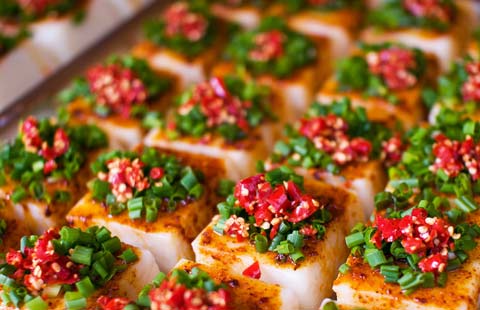
China's top 10 foodie cities |
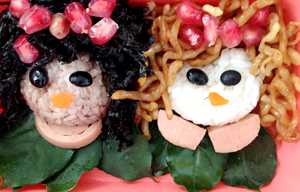
Cute boxed meals |
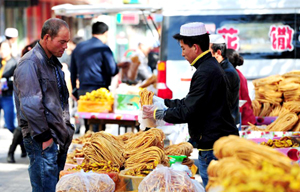
Muslims greet annual festival of Eid al-Adha in Yinchuan |
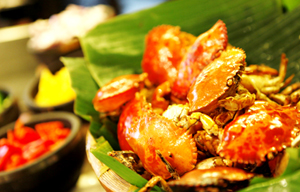
Cafe Noir hosts Singapore food festival |
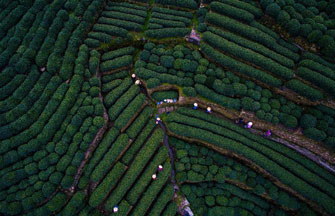
Newly-picked Longjing tea soon be in season |
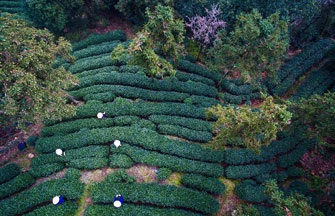
Farmers harvest West Lake Longjing tea in Hangzhou |
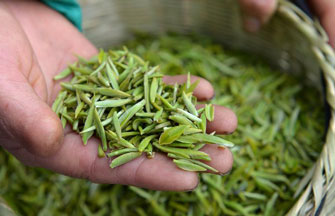
Tea plucking season in China's Guizhou |
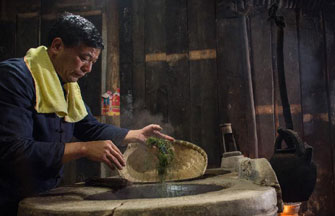
Farmers make tea before Qingming Festival |